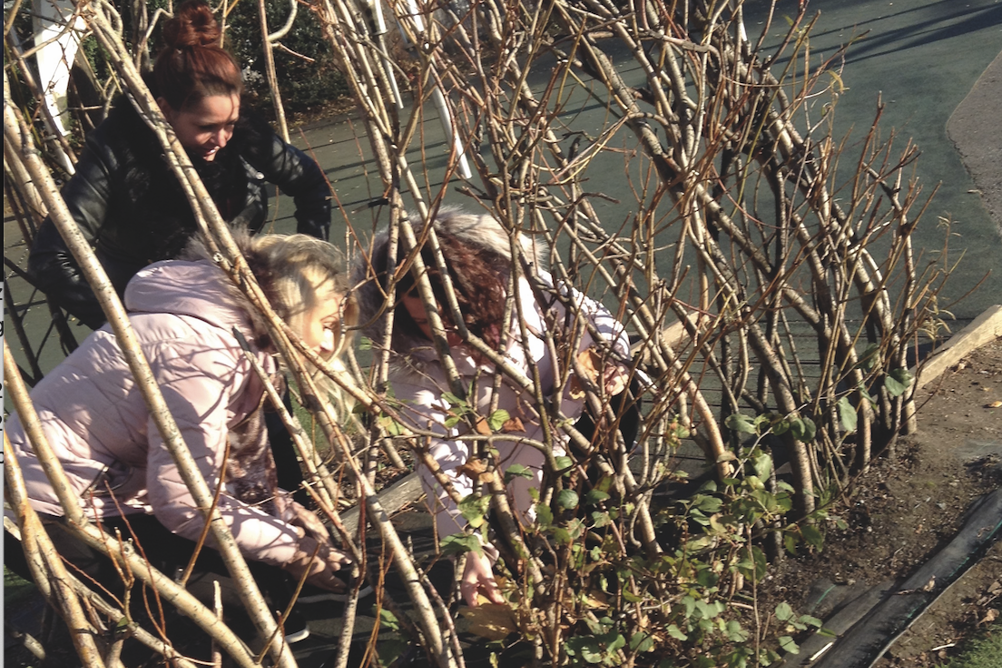
There’s no such thing as bad weather, only unsuitable clothing.’ So famously wrote fellwalker and author Alfred Wainwright. And while poor weather is one reason early years practitioners can be reluctant to teach outdoors, trainers in the subject say addressing low confidence and building core outdoor competencies involves more than just providing wellies and a waterproof coat.
Early Years Outdoor Learning trainer Jackie Slaughter says one of the main reasons early years practitioners can lack confidence in delivering outdoor learning is simply because early years qualifications traditionally exclude it. When a person chooses to work in the industry, they rarely envisage delivering teaching outside. ‘It’s seen as not having the same weight as indoor learning,’ she says. ‘People perceive that indoors is where the learning takes place because that’s where most practitioners are confident.’
As well as doing outdoor continual development training to overcome such misconceptions, Ms Slaughter advises practitioners find out which nearby settings are delivering outdoor learning successfully through their local authority and go to observe. ‘One of the best ways to learn is to get real hands-on experience,’ she recommends.
Training is also important to ensure practitioners are confident about what to teach outside. ‘It’s knowing what to do, how to do it, and how you can adapt,’ says Ms Slaughter. ‘It’s exactly the same skills as inside. If you’ve got a good practitioner interested in what they’re doing and wanting to improve, that will come outside. But you have to consciously want to develop it.’
‘You can’t do everything at once,’ she advises. ‘Set short-term, mid- and long-term goals.’
Learning Through Landscapes senior project officer Ruth Staples-Rolfe credits the early years sector for becoming better at embracing the outdoors. ‘Seven years ago we were working with teacher training colleges where we were seeing young girls doing their outdoor training completely inappropriately dressed,’ she recalls, adding better understanding of the EYFS has gradually improved practice so that now ‘we see that a lot less.’ She believes this is also due to senior managers understanding better that the outdoors should be part of everyday provision, and something Ofsted will value.
Ms Staples-Rolfe says many of the core competencies for teaching indoors and outdoors are the same. ‘Awareness of the child’s development needs, whether indoors or outdoors, is invaluable,’ she says. ‘Being able to support the child’s needs in that environment is important.’
She points to the necessity for practitioners to have a positive attitude to challenging situations for children. Many workers can be unconfident of the extra risk that can be a feature of outdoor learning. They might fear losing control of a group of children outside, not being able to see children all the time, or find it harder to be heard. ‘The use of the word “no” is important,’ she says. ‘A positive attitude towards risk and challenge is another barrier some practitioners come up against because they’re pushing their own comfort zones when they look at the large gross motor control, physical skills or use of tools which they might not feel confident with themselves.’
The right training can help practitioners build confidence in these areas, such as using tools or play equipment at height. But so can good planning and team work, says Ms Staples-Rolfe. Planning needs to include awareness that the outdoors is a dynamic environment. A confident practitioner must be able to ‘bond with what’s around you’, she advises, and make the most of variety, such as rain. ‘How do you watch the children and see how they’re reacting to the rain and then turn it into a positive experience?’ she says.
Team spirit can also boost confidence. ‘Having a mixed team and recruitment within a nursery is really important,’ Ms Staples-Rolfe recommends. ‘Acknowledge that everyone in your team will bring something different to the outdoors. Make sure nobody is isolated outdoors – it’s better to have more than one person out at a time. Make sure comforts are looked after – that they have a regular break or are rotating through different activities.’ The correct outdoor clothing is also important for comfort (see the next instalment for more).
If a practitioner is really unconfident being outside, Ms Staples-Rolfe suggests they start with something they like and build from there. ‘If you love reading, set up a story area in the garden so you can follow your interests,’ she says.
Forest School Learning Initiative director Chris Dee says a great way to bolster practitioners’ confidence outside is to empower the children first. ‘Practitioners are unconfident about health and safety – that’s the biggest thing we hear,’ she says. ‘Part of our Forest School ethos is to empower children to manage risk. When you start to empower children, you give them more confidence to learn. It’s the same with practitioners. Ask them how they can manage their area safely with their children. Get them out doing activities. Then ask how they can connect it to the curriculum.’
She believes many of the fears practitioners hold are unfounded, as children rarely take ‘silly risks or want to run away’. She also advocates keeping outdoor learning simple. ‘In early years, less is more,’ she says. ‘It’s a facilitative way of learning. The adult’s role is to ask the right, open-ended questions. But mainly to listen to children.’









